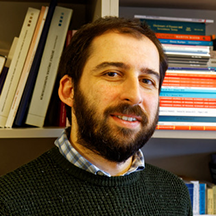The geography of innovation: evidence from regions in Turkey
To what extent does the concentration of new firms in a region naturally lead to innovation and growth? And when are policy actions needed to stimulate the local economy? This column reports new research on the experiences of Turkey, contrasting the innovative performance of different parts of the country – and exploring the implications for policy to promote local growth.
New firms and economic geography in Turkey
The Turkish economy is characterised by considerable regional disparities, including big differences in the willingness of new firms to locate in different parts of the country. This column reports research evidence that there is also spatial variation in the factors that can boost local economic activity and contribute to a smoothing of economic geography across Turkey’s western and eastern regions.
Human capital and regional disparities in Turkey
Turkey has a longstanding problem of uneven economic development across its regions. This column explores the interactions between the market access of central and remote parts of the country, the varying levels of human capital accumulation in those places, and the wage returns to education. The research evidence indicates the potential of regional policy to reduce inequalities.


